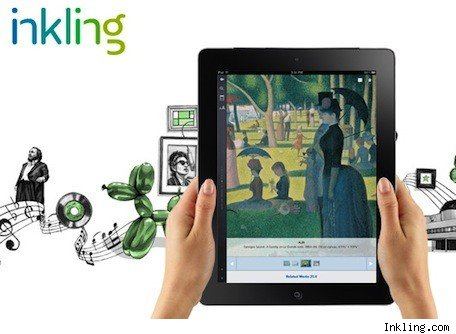
The Next Frontier Of Digital Self-Publishing Has Been Breached
 The Next Frontier Of Digital Self-Publishing Has Been Breached
The Next Frontier Of Digital Self-Publishing Has Been Breached
The ebook revolution began quietly in 2007 with the introduction of Kindle e-reader in 2007. 6 years later, e-books have completely changed the publishing industry landscape, gaining 22% of all book spending for the second quarter of 2012 according to a Bowker survey. On Amazon itself, the share of ebooks for the same period reached a whooping 27%.
As the pioneer of the ebook revolution , Amazon has garnered many enemies in addition to it’s army of readers. Aside from the many legal battles lead by publishers trying to stop Amazon’s conquest of the market, others are trying to beat them on new markets and establish a presence before Amazon.
Enhanced ebooks might well be the next battle in the conquest of readership and this is where Matt MacInnis, the founder and CEO of Inkling, hopes to score points against Amazon and other giants such as Apple. MacInnis is a former Apple executive and his company counts Sequoia Capital and publishers McGraw-Hill and Pearson among its investors.
Last week, in an event in New York, he unveiled a new digital book publishing tool for professionals, dubbed Habitat. It also launched the “Inkling Content Delivery Platform” to allow people to comb through books using search engines like Google and read limited amounts of content for free.
With its new products, Inkling aims to become the most-used platform for delivering “content you can use.” And it hopes to put pressure on Amazon (and Apple, to a lesser extent) during the process.
“Amazon is killing the publishing industry,” Matt MacInnis, Inkling CEO and founder, told CNET in a recent interview. “It has amassed too much market power, and every single entity in the industry is interested in overthrowing the [near] monopoly. … If we’re distributing content more efficiently than Amazon is, or even if we’re only a fraction as successful as Amazon is, publishers still have a new revenue stream outside Amazon, and that’s good for them.”
Today, most e-books are text-heavy novels found in Amazon’s Kindle store and other online bookstores. That has allowed Amazon to dominate the industry with about 60 percent market share, according to Forrester, and has forced some traditional bookstore owners, like Borders, to close. It also has forced publishers to merge and determine their strategies for a digital world.
Whether traditional publishers will safely wait for Apple or another giant to conquer the enhanced ebook market before joining the bandwagon or jump headfirst and gain their market share while the market is still new is going to be a determining factor in drawing the map of tomorrow’s publishing industry